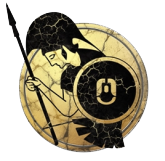Komentarze
This smells of sour grapes personally. The game itself has reached great heights and continues to do so. Developers of most games have a god complex and in general see doom of a project when they are not involved. I mean boo- hoo bud the real corporate world has the same politicking!To write this article, it only goes to show that you have not yet stepped into the real world of game development and or publishers.
\'The army did this and that\'- Not a single & current statistic for the game shows an ounce of recession as you have proclaimed. Why with it\'s latest release it once again broke all download records and player registrations.
Someone needed to stand up and let you devs known that the screw ups and bugs where not the army\'s fault rather it was due to game content. Real world developers dont get 6 months between patches. It has been a culture of late releases , slow patches and excuses from the devs.
Sorry guy, I am not going to be the hugs and kisses Dev AA groupie. It\'s great that the original team was given a kick in the ass , maybe the NC team would learn from it and have a better showing.
What\'s up with this whining about politics at ones work, lately?
1.4, 1.7 and version 2.0 were disasters! Hell the concept of throwing in a 2.0a was because of the disaster on 2.0 and itself took over a month to come out.
What is the track record of maps released when Alex was in-charge? And over what time period? Map releases are not the communities Achilles foot, its game play that blew chunks. It took 3 months for his team to fix an issue that crashed the auth servers that Homelan ran. For 3 months Homelan kept posting, sorry the devs know it\'s an issue with the code in game that is affecting the auth servers.
The genius dev team put most auth functionality on the client side that was the sole cause of the entire major hacking o the honor/stats system. Just now in 2.3 have they reverted it back to the server side. That’s the dev team member belonging to he Alex group, who speaking of army politicking and the game demise? HA!. It’s more of a rescue effort from the sheer cluster fuck of design flaws from the original team.
This is one guy’s warped sense of insecurity that made him write such a slanted view. Look at the true game history I say, not the politicking. Go to any top 15 publishers and say, we are going take 6 months to put out patches addressing previous patch issues & I\'ll show you their pink slip.
They butchered the UT2k3 code; to a point even the Epic team shook their heads at Alex and his crew. This was on the Atari game forums where they posthumously awarded the Alex Mayberry AA Dev team as the having the distinct honor of the dev team to most butcher the UT2k3 code among the various UT engine code based games out there.
n 1999, when the U.S. Army recruiting numbers hit their lowest point in thirty years[3] (http://www.cnn.com/US/9909/30/army.recruitment/#1) after two straight years of missed recruiting targets, the Congress of the United States decided to carry out \"aggressive, innovative experiments\" with regard to the number of recruitments, and the Department of Defense raised its spending for recruitment to more than US$2.2x109, which not only paid for the Army Game Project, but for an entire promotional campaign to polish up the U.S. Army\'s image. For instance they had a new slogan being invented and made a title sponsorship of a team taking part in NASCAR races, where America\'s Army was later allotted as well.
A report by Michael Zyda induced the U.S. Army to spend US$45 million to the U.S. Navy\'s Naval Postgraduate School in Monterey, California, to create a research centre to develop advanced military simulations.
Lieutenant Colonel E. Casey Wardynski, an economics professor at the United States Military Academy, West Point, who later became director of the Office of Economic and Manpower Analysis (OEMA) at this academy and the head of the Army Game Project, exhibited to the Deputy Chief of Staff for Personnel as well as the Deputy Assistant Secretary of the Army for Military Manpower the idea of an online computer game designed and distributed by the United States Army. He managed to convince them of the cost-effectiveness the project would have, and from then on he has collaborated with Professor Zyda.
In 2001Ubisoft the French Canadian company software company [/B][/GLOW] was granted by Department of Defense to use Tom Clancy\'s Rainbow Six: Rogue Spear for training military personnel.
On July 4, 2002, the United States\' Independence Day, the first version of America\'s Army, named Recon, was released after three years of development and it was made available for free as either a download or on CD. Its production cost US$7.5 million and it quickly became one of the ten most often played online first-person shooters, mainly due to the gameplay similar to Counter-Strike, the game\'s easy availability, the new Unreal Engine and the large number of free servers sponsored by the U.S. Army. The Army is spending US$3 million a year to develop future versions of the game and US$1.5 million annually to support them (e.g. through servers). America\'s Army: Soldiers, a Role Playing Game in development stage that was to elucidate career paths in the U.S. Army, failed and was brushed under the carpet.
In 2003, Ubisoft \'s commercial Tom Clancy\'s Rainbow Six 3: Raven Shield was licensed to be adopted by the U.S. Army for testing soldiers\' skills.
* 1.0 (AA: Recon) - July 4, 2002
* 1.2.0 (AA: Operations) - August 23, 2002
* 1.2.1 (AA:O) - August 27, 2002
* 1.4 (AA:O) - November 27, 2002
* 1.5 (AA:O) - December 23, 2002
* 1.6 (AA:O) - March 17, 2003
* 1.7 (AA:O) - May 1, 2003
* 1.9 (AA:O) - August 10, 2003
* 2.0 (AA:Special Forces) - November 6, 2003
* 2.0a (AA:SF) - December 23, 2003
* 2.1 (AA:SF Downrage) - June 1, 2004
* 2.2.0 (AA:SF Vanguard) - October 19, 2004
* 2.2.1 (AA:SF Vanguard) - November 18, 2004
* 2.3 (AA:SF Firefight) - February 18, 2005
On November 6, 2003, version 2.0 of America\'s Army was published, with the full title of America\'s Army: Special Forces. The developers gave no reasons why the game foregrounded the U.S. Special forces in this and the following versions, and only a Navy-produced booklet found by the investigative journalist Gary Webb explained this shift. It stated that \"the Department of Defense want[ed] to double the number of Special Forces soldiers, so essential [had they proven] in Afghanistan and northern Iraq; consequently, orders [had] trickled down the chain of command and found application in the release of [this version of America\'s Army].\" [4]
America\'s Army, considered by the U.S. Army as a \"cost-effective recruitment tool,\" aims to become part of youth culture\'s \"consideration set,\" as Army deputy chief of personnel, Timothy Maude, testified before the Senate Armed Services Committee.[12] (http://www.thenation.com/doc.mhtml?i=200...s=hodes20020823)
America\'s Army is the first game to make recruitment an explicit goal and the first well-known overt use of computer gaming for political aims.
The game also extends the military entertainment complex, as so-called \"militainment\" further blurring the line between entertainment and war,[13] (http://www.tomdispatch.com/index.mhtml?emx=x&pid=1012) with one side stating it will help close the cleft between military and civil life and the other argueing it contributes to a militarization of society.[14] (http://www.gamasutra.com/education/these...5/ZLITHESIS.pdf)
Research papers of four different universities that have analysed America\'s Army all confirm that the game is propaganda and one also says that \"video game propaganda, whether morally right or wrong, is here to stay. It is not a passing phase, but an effective way that the U.S. government has discovered to recruit soldiers and something other nations are now beginning to experiment with as well.\" The paper predicts that \"video game propaganda will prove to be most effective\" as well.[15] (http://www-ugs.csusb.edu/honors/02/ResTravis.htm)
After the paper had been released, a poll by I for I Research said that 30 percent of young people who had a positive view of the military said that they had developed that view by playing the game. At the United States Military Academy 19 percent of 2003\'s freshman class stated they had played the game. Enlistment quotas were met in the two years directly following the game\'s release.[16] (http://www.notinourname.net/resources_li...game-7nov03.htm)
M. Paul Boyce, an Army public affairs officer at the Pentagon, was quoted as saying it would never be possible to find out what difference the game has made to recruitment numbers, but that he hoped no one has been recruited because of the game on the grounds that America\'s Army makes no attempt to help answer \"hard questions\" about the Army, such as \"Is it right for me, is it right for my family, and is it right for my country?\".[17] (http://www.detnews.com/2004/technology/0412/01/A01-20800.htm) In fact America\'s Army focuses on the technological aspect of war rather than the moral one and has also therefore been referred to as How We Fight, alluding to the U.S. government\'s series of films named Why We Fight, which supported the war effort for World War II.[18] (http://www.mediaed.org/news/articles/militarism)
In an interview with the American journalist Gary Webb, Professor Zyda said: \"We thought we\'d have a lot more problems. But the country is in this mood where anything the military does is great. ... 9/11 sort of assured the success of this game. I\'m not sure what kind of reception it would have received otherwise.\"[19] (http://www.newsreview.com/issues/sacto/2004-10-14/cover.asp)
The 1984 movie The Last Starfighter features a recruitment strategy similar to this game.






